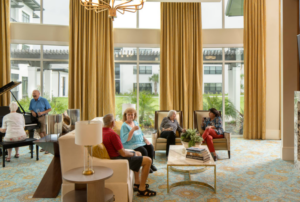As our population ages, providing culturally competent care for older African American adults becomes increasingly vital. At WES BAILEY, MD, CAQSM, we recognize that quality healthcare extends beyond medical treatment—it requires understanding the unique cultural, historical, and social factors that impact health outcomes in Black communities.
This article explores why culturally sensitive care matters for aging African American patients and how it leads to better health equity, stronger patient-provider relationships, and improved quality of life.
Understanding the Need for Cultural Competence
Cultural competence in healthcare means:
✔️ Acknowledging historical trauma (Tuskegee Syphilis Study, healthcare discrimination)
✔️ Recognizing socioeconomic barriers to care
✔️ Understanding cultural health beliefs and traditions
✔️ Addressing implicit biases in diagnosis and treatment
For older African Americans, these factors significantly influence:
- Trust in medical providers
- Treatment adherence
- Preventive care utilization
- Chronic disease management
Key Health Disparities Affecting Older African Americans
1. Higher Chronic Disease Rates
African Americans ages 65+ experience:
- 40% higher hypertension rates
- Twice as likely to develop diabetes
- Greater risk for Alzheimer’s and vascular dementia
2. Barriers to Quality Care
Many face:
- Transportation challenges to appointments
- Distrust of medical systems
- Financial constraints (despite Medicare/Medicaid)
- Language barriers in health literacy
3. Mental Health Stigma
Depression and anxiety often go:
- Undiagnosed due to cultural stigma
- Mistaken for normal aging
- Untreated from reluctance to seek help
How Culturally Competent Care Makes a Difference?
At WES BAILEY, MD, CAQSM, we bridge these gaps through:
1. Trust-Building Communication
- Using respectful terms (“Mr./Ms.” unless invited otherwise)
- Incorporating faith/spirituality when relevant
- Explaining conditions in clear, non-medical language
2. Personalized Chronic Disease Management
For conditions like hypertension and diabetes, we:
- Consider cultural dietary preferences (soul food adaptations)
- Address medication concerns (mistrust, side effects)
- Provide family-inclusive education
3. Mental Health Integration
We normalize mental healthcare by:
- Framing discussions around “whole health” rather than “mental illness”
- Connecting patients with Black therapists/counselors
- Offering faith-based counseling referrals when requested
Best Practices in Culturally Competent Geriatric Care
1. Historical Trauma Awareness
- Acknowledge past medical injustices without dismissing current concerns
- Explain treatment plans transparently to build trust
2. Family-Centered Approach
Many older African Americans rely on:
- Adult children as caregivers
- Church communities for support
- Multigenerational households
We engage these networks in care planning.
3. Community Partnerships
Collaborating with:
- Black churches for health screenings
- Senior centers for wellness programs
- Local NAACP chapters for advocacy
Why Representation Matters in Geriatric Care?
Studies show African American patients experience:
✅ Better communication with Black providers
✅ Higher satisfaction with treatment plans
✅ Greater adherence to medications and follow-ups
At WES BAILEY, MD, CAQSM, our diverse team understands these nuances firsthand.
Overcoming Common Challenges
1. “I Don’t Want to Be a Burden”
We counter this by:
- Emphasizing preventive care saves families future stress
- Offering telehealth options to reduce travel burdens
2. “Doctors Don’t Listen to Me”
We address this through:
- Longer appointment times
- Active listening techniques
- Validating concerns without dismissal
3. “I Can’t Afford Healthy Food”
Our solutions include:
- Food pantry referrals
- Budget-friendly meal plans
- Community garden connections
Take the Next Step Toward Better Care
If you or a loved one seeks culturally attuned healthcare in Atlanta, WES BAILEY, MD, CAQSM provides:
🌿 Respectful, personalized geriatric care
🌿 Chronic disease management tailored to Black elders
🌿 Mental health support without stigma

 Home
Home







